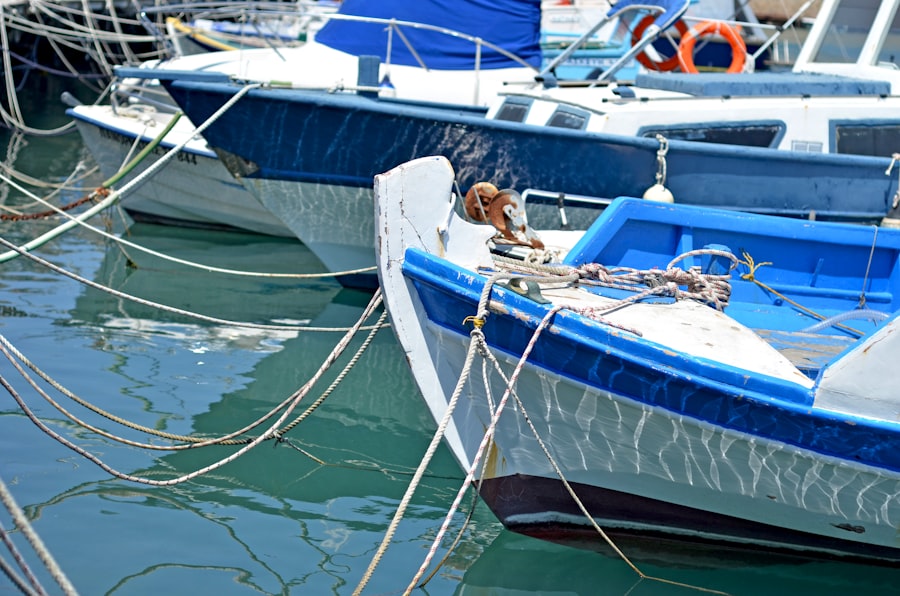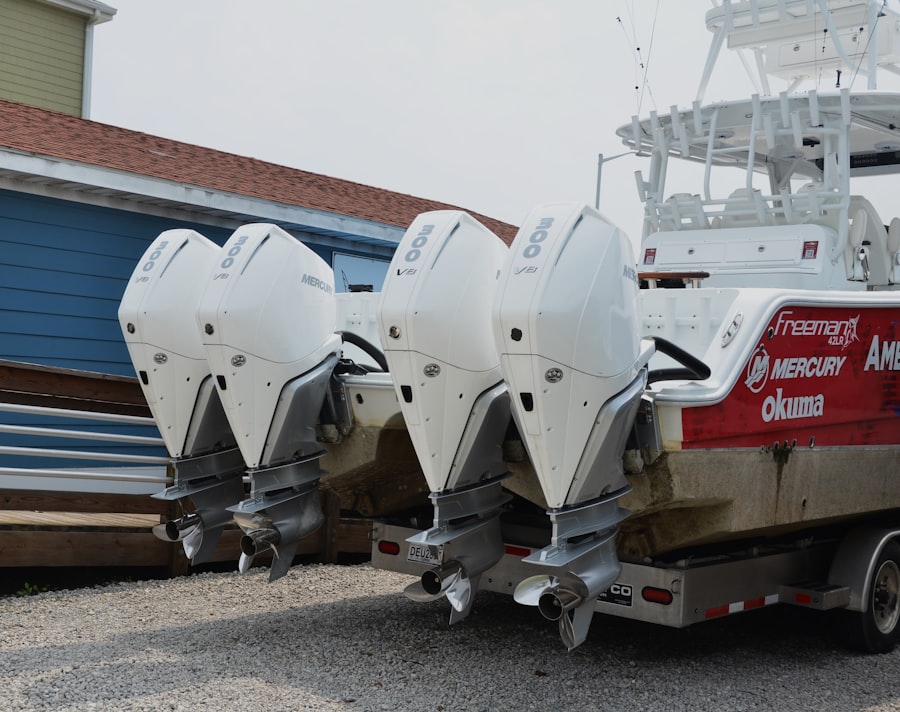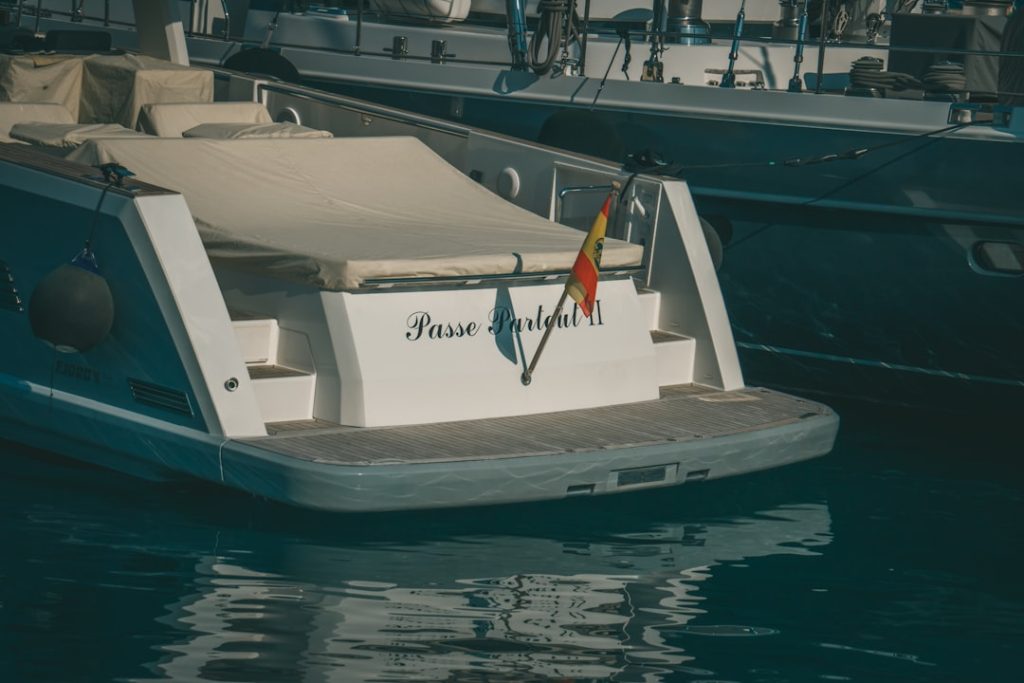When embarking on the journey to select the right boat motor, the first step is to thoroughly understand your specific needs. This involves considering various factors such as the type of boat you own, the intended use of the boat, and the conditions in which you plan to operate it. For instance, if you have a small fishing boat primarily used in calm lakes, a lightweight, portable outboard motor may be ideal.
Conversely, if you own a larger vessel designed for ocean cruising, you might require a more powerful inboard motor that can handle rougher waters and longer distances. Additionally, it is crucial to assess your boating habits and preferences. Are you an occasional weekend boater, or do you plan to spend extended periods on the water?
The frequency of use can influence the type of motor you choose. A motor that is easy to maintain and fuel-efficient may be more beneficial for someone who uses their boat frequently. Furthermore, consider the number of passengers you typically carry and any additional equipment or gear you might need to accommodate.
Understanding these nuances will help narrow down your options and ensure that you select a motor that aligns with your boating lifestyle.
Key Takeaways
- Assess your boating needs carefully to choose the right motor type and power.
- Research and visit local dealers to explore available boat motor options nearby.
- Compare different brands and models to find the best fit for your specific boat.
- Consider both new and used motors, weighing affordability against reliability.
- Inspect, test, and negotiate thoroughly to ensure quality and secure the best price.
Researching Local Dealers: Finding the Best Boat Motors Near You
Once you have a clear understanding of your needs, the next step is to research local dealers who can provide the boat motors that fit your criteria. Start by exploring online resources, such as dealer websites and customer reviews, to gauge the reputation of various dealerships in your area. Look for dealers that specialize in marine equipment and have a solid track record of customer service.
Engaging with local boating communities, whether through social media groups or forums, can also yield valuable recommendations for reputable dealers. Visiting local dealerships in person can provide additional insights into their inventory and customer service practices. Take note of how knowledgeable the staff are about different motor types and brands.
A good dealer should be able to answer your questions comprehensively and offer guidance based on your specific needs. Additionally, inquire about any ongoing promotions or financing options that may be available. Building a relationship with a local dealer can also be beneficial for future maintenance and support, making it an essential part of your research process.
Comparing Brands and Models: Identifying the Perfect Match for Your Boat

With a list of potential dealers in hand, it’s time to delve into comparing different brands and models of boat motors. Each manufacturer has its unique strengths and weaknesses, which can significantly impact your boating experience. For example, Yamaha is renowned for its reliability and fuel efficiency, making it a popular choice among recreational boaters.
On the other hand, Mercury is often praised for its innovative technology and performance capabilities, appealing to those who prioritize speed and power. When comparing models, consider factors such as horsepower, weight, and features like electric start or power tilt and trim. It’s also essential to evaluate warranty options and customer support services offered by each brand.
Reading user reviews can provide real-world insights into how different motors perform under various conditions. Additionally, if possible, seek out opportunities to test drive different models to get a feel for their handling and responsiveness on the water. This hands-on experience can be invaluable in making an informed decision.
Evaluating Used Options: Finding Affordable Boat Motors Near Me
| Metric | Description | Example Value | Notes |
|---|---|---|---|
| Price Range | Typical cost range for used boat motors in local area | 500 – 2500 | Varies by motor size and brand |
| Motor Type | Common types of used boat motors available | Outboard, Inboard, Electric | Outboard motors are most popular |
| Horsepower (HP) | Power range of used motors found | 5 – 150 HP | Higher HP motors cost more |
| Average Age | Typical age of used motors on market | 5 – 10 years | Older motors may need more maintenance |
| Condition Rating | Common condition levels of used motors | Good, Fair, Excellent | Condition affects price and reliability |
| Fuel Type | Fuel types for used motors available | Gasoline, Diesel, Electric | Gasoline most common for outboards |
| Seller Type | Where used motors are typically sold | Private, Dealer, Online Marketplace | Dealers may offer warranties |
| Warranty Availability | Percentage of used motors sold with warranty | 10% – 30% | More common with dealer sales |
| Average Mileage/Hours | Typical engine hours on used motors | 200 – 800 hours | Lower hours preferred for longevity |
For many boaters, purchasing a used motor can be an excellent way to save money while still acquiring a quality product. When evaluating used options, it’s essential to approach the process with a discerning eye. Start by checking online marketplaces, local classifieds, and dealer inventories for available used motors.
Pay attention to the age of the motor, its maintenance history, and any signs of wear or damage. A well-maintained motor with a documented service history can often be a better investment than a newer model that has been poorly cared for. When inspecting used motors, look for key indicators of their condition.
Check for any corrosion or rust on metal components, as this can indicate exposure to harsh conditions or inadequate maintenance. Additionally, ask for a demonstration of the motor running if possible; this will allow you to assess its performance firsthand. If you’re not confident in your ability to evaluate a used motor’s condition, consider bringing along a knowledgeable friend or hiring a marine mechanic to conduct a thorough inspection before making a purchase.
The decision between purchasing a new or used boat motor involves weighing several pros and cons associated with each option. New motors typically come with warranties that provide peace of mind regarding potential repairs or defects. They also incorporate the latest technology and fuel efficiency standards, which can lead to lower operating costs over time.
However, new motors often come with a higher price tag, which may not fit every budget. On the other hand, used motors can offer significant savings but may come with hidden risks. While many used motors are still in excellent condition, there’s always the possibility of unforeseen issues arising after purchase.
Additionally, used motors may lack modern features that enhance performance or ease of use. Ultimately, your decision should align with your financial situation and how much risk you’re willing to take on regarding potential repairs or maintenance needs.
Negotiating Prices: Getting the Best Deal on Boat Motors Near Me
Once you’ve identified potential motors—whether new or used—the next step is negotiating prices to secure the best deal possible. Start by researching the market value of similar models to establish a baseline for negotiations. This information will empower you during discussions with dealers or private sellers by providing concrete data on what constitutes a fair price.
When negotiating, approach the conversation with confidence but also be respectful and open-minded. If you’re dealing with a dealer, they may have some flexibility in pricing or be willing to throw in additional services such as installation or maintenance packages. For private sellers, expressing genuine interest while also pointing out any flaws or concerns can create leverage in negotiations.
Remember that successful negotiation often involves compromise; be prepared to walk away if the terms do not meet your expectations.
Ensuring Quality and Reliability: Inspecting and Testing Potential Purchases

Before finalizing any purchase, it’s crucial to ensure that the motor you’re considering is both high-quality and reliable. For new motors, this typically involves reviewing warranty details and manufacturer specifications to confirm that they meet industry standards. For used motors, however, thorough inspection becomes paramount.
Look for signs of wear such as frayed wires or leaks in fuel lines; these can indicate underlying issues that may require costly repairs down the line. Testing the motor is equally important; if possible, request a water test where you can observe its performance firsthand. Pay attention to how smoothly it starts up and whether it runs quietly without unusual noises or vibrations.
Additionally, check how responsive it is at various throttle levels; this will give you insight into its overall performance capabilities. If you’re not comfortable conducting these evaluations yourself, consider hiring a marine mechanic who can provide an expert assessment before you commit to buying.
Making the Purchase: Finalizing the Transaction for Your Perfect Boat Motor
After thorough research, inspections, and negotiations, you’re ready to finalize your purchase of the perfect boat motor. Ensure that all paperwork is in order before completing the transaction; this includes verifying ownership documents for used motors and understanding warranty terms for new ones. If purchasing from a dealer, review any financing agreements carefully to ensure there are no hidden fees or unfavorable terms.
Once everything is settled, make arrangements for delivery or pickup of your new motor. If you’re purchasing a used motor from a private seller, ensure that you have all necessary documentation transferred correctly to avoid any future complications regarding ownership or registration. Finally, take some time to familiarize yourself with your new motor’s operation manual; understanding its features and maintenance requirements will help ensure that you enjoy many successful outings on the water ahead.


